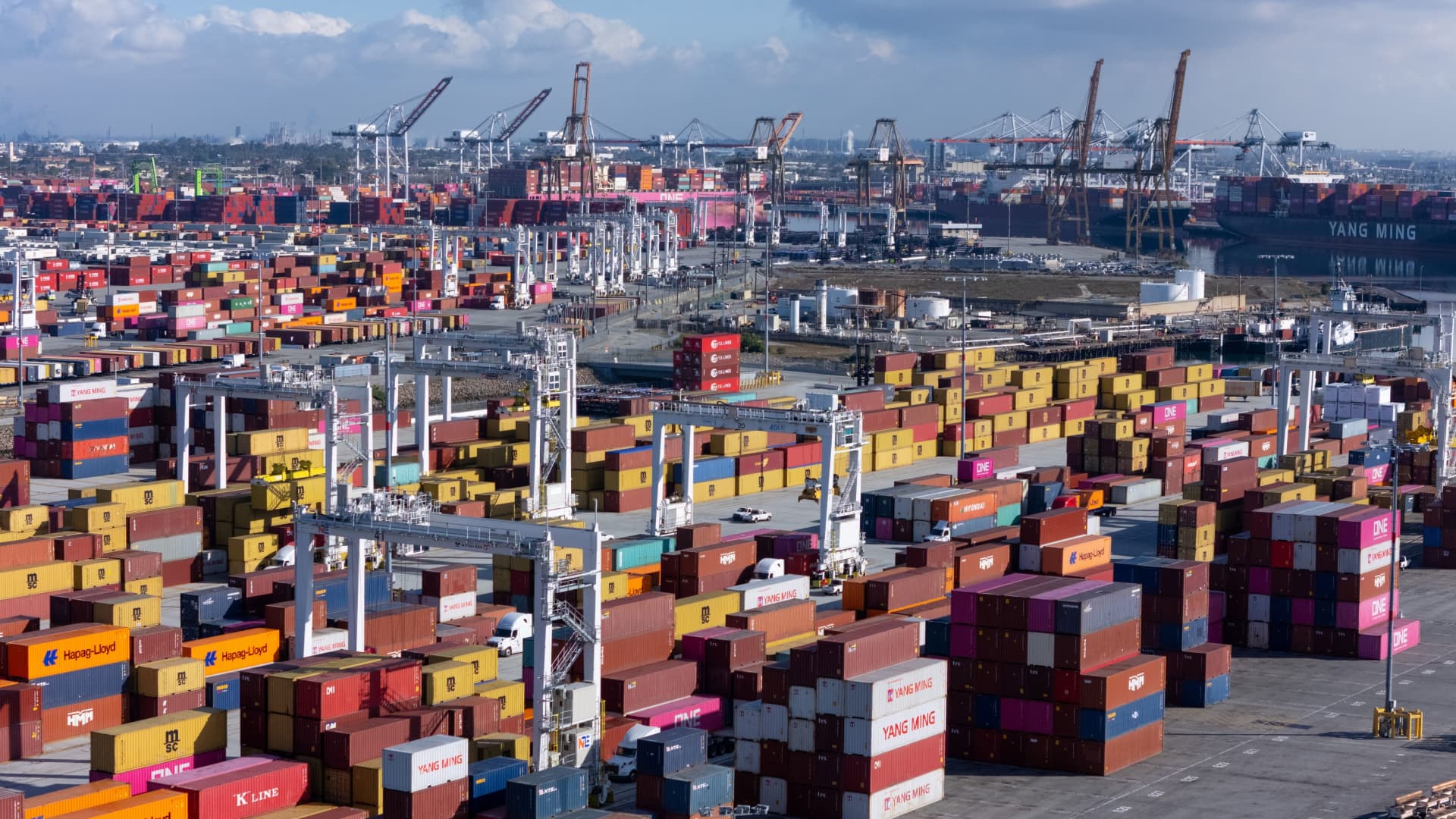Mexican President Takes Bold Stand with Retaliatory Tariffs on U.S. Imports
In a surprising turn of events, the Mexican president has announced a series of retaliatory tariffs aimed at U.S. imports, a move that has sent shockwaves through both nations and raised concerns about the future of trade relations between the two neighbors. This bold stand represents not just a response to perceived economic injustices, but also a significant shift in Mexico’s approach to its largest trading partner. As the dust settles on this announcement, it’s essential to analyze the implications for the economies of both countries and the potential for diplomatic fallout.
Understanding the Context of Retaliatory Tariffs
The announcement comes on the heels of escalating trade tensions, which have been simmering for years due to various trade policies and practices. Retaliatory tariffs are a common tool used by nations to counteract what they perceive as unfair trade practices, and in this case, Mexico’s decision is a calculated response to previous tariffs imposed by the United States.
Historically, trade agreements like the USMCA (United States-Mexico-Canada Agreement) have aimed to create a balanced trade environment. However, the reality often differs from the ideal, leading to disputes that can escalate into tariff wars. The current situation underscores a critical moment in U.S.-Mexico trade relations, where diplomatic dialogues are increasingly replaced by economic maneuvers.
The Specifics of the Tariffs
The Mexican government has outlined a set of tariffs that will affect a variety of U.S. goods, including agricultural products, electronics, and automotive parts. These tariffs are designed not only to protect domestic industries but also to pressure the U.S. government to reconsider its trade policies. The president’s administration argues that these tariffs are a necessary measure to level the playing field for Mexican businesses that have been adversely affected by U.S. policies.
- Agricultural Products: Tariffs on U.S. corn, soybeans, and pork are expected to significantly impact American farmers.
- Electronics: Increased costs on imported electronics could strain U.S. manufacturers reliant on Mexican assembly.
- Automotive Parts: The automotive industry, vital to both economies, may face disruptions due to increased tariffs.
The Economic Implications of Retaliatory Tariffs
The introduction of retaliatory tariffs by Mexico could have far-reaching consequences for both economies. Here’s a closer look at some key economic implications:
- Increased Prices for Consumers: Tariffs generally lead to higher prices for consumers as import costs rise. Both Mexican and U.S. consumers may find themselves paying more for goods that rely on cross-border trade.
- Impact on U.S. Farmers: U.S. farmers, who heavily rely on exports to Mexico, could face decreased demand for their products, leading to potential losses and farm closures.
- Disruption of Supply Chains: Many U.S. companies utilize Mexican manufacturing for cost-effective production. Tariffs could disrupt these established supply chains, leading to delays and increased operational costs.
Potential Diplomatic Fallout
Beyond the economic ramifications, the announcement of retaliatory tariffs raises questions about the future of diplomatic relations between the U.S. and Mexico. Historically, both nations have worked collaboratively on various fronts, including immigration, security, and trade. However, this latest development could strain those relationships further.
Diplomatic tensions may arise due to the following factors:
- Negotiation Stalemates: The tariffs could stall ongoing negotiations on various bilateral issues, as both countries may take a more hardline stance.
- Public Sentiment: Nationalistic sentiments in both countries may rise, leading to increased public pressure on leaders to adopt more aggressive policies.
- Regional Stability: Mexico’s decision may encourage other countries in the region to adopt similar trade strategies, potentially leading to a broader trade conflict.
Optimistic Perspectives and Potential Resolutions
While the situation appears tense, it’s important to consider that such trade disputes have historically led to resolutions that benefit both parties. There are several optimistic perspectives regarding the potential for constructive dialogue and solutions:
- Opportunities for Negotiation: The imposition of tariffs could serve as a wake-up call for both governments to engage in serious negotiations to address underlying issues in trade policies.
- Innovation and Adaptation: U.S. companies may innovate to find new markets and reduce reliance on Mexican imports, potentially leading to new business opportunities.
- Strengthening Local Economies: The tariffs may encourage Mexico to bolster its domestic industries, leading to job creation and economic growth within the country.
Conclusion: A Call for Diplomacy Over Conflict
The Mexican president’s decision to impose retaliatory tariffs on U.S. imports marks a significant moment in international trade relations. While it undeniably escalates tensions, it also opens the door for dialogue and negotiation that could lead to more equitable trade practices. As both nations navigate this complex landscape, it is crucial to prioritize diplomacy over conflict, ensuring that trade remains a vehicle for cooperation and mutual benefit rather than a source of division.
Ultimately, the world will be watching closely to see how the U.S. and Mexico respond to this challenge. The outcome will not only shape the future of their bilateral relations but also set a precedent for how countries can resolve trade disputes in an increasingly interconnected global economy.
See more CCTV News Daily



